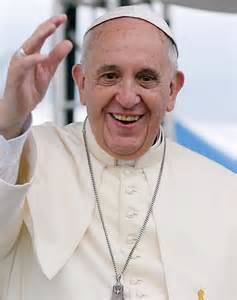Each week I meet with a group of students from IUPUI
on behalf of The Comenius Institute.
The students asked if I would keep them up to speed with events in the culture since they are so busy studying. I send a list of questions and hyperlinks the week before so each person can ponder cultural issues.
Pope Francis was in the U.S. this past week, so we discussed some of the following questions yesterday:
- Why is this pope so popular with the mainstream media? An article from 2014 and this past week’s coverage in Newsweek on the pope’s visit may give some ideas.
- How does this pope differ with the last two popes and why is the difference important? (HINT: note the country of origin, cultural, as well as historical background of each). John Paul, Benedict, and now, Francis. Here is an article from 2013 that gives a comparison between Benedict and Francis.
- What is “liberation theology” and why is it important to know for understanding Pope Francis? Here is an article from Al Jazeera. Do the pope’s comments on “immigration” or the “environment” square with the facts? George Will comments from the Washington Post.
- How do liberals and conservatives view the pope? The New York Times offers an assessment. Ross Douthat, a Roman Catholic, comments from the New York Times.
- Why would the pope have a pleasant meeting with the dictator Fidel Castro while not visiting any Cuban dissidents? Here is a Washington Post article about the Cuba visit. Why doesn’t Francis “call out” human rights violations in Cuba? A Newsweek article with a scathing editorial from The Washington Post.
A summary article was well titled, “Neither Conservative, nor Liberal but Catholic” from John Fea at Fox.
We had a great discussion about these and other issues at IUPUI yesterday.
The students asked (1) “How could peoples’ views of Pope Francis differ so widely?” and (2) “Why did Pope Francis seem to highlight some ideas in his speeches more than others?”
To the first question, my response is generally the same: we all look at the same event from different angles. Is what the person says important? Sure! Can we agree or disagree with one point of view or another? Of course!
The various hyperlinks above are as different as Al Jazeera America and Fox. But honestly, some of the most searing statements came from what is normally thought of as “liberal” outlets such as The New York Times and The Washington Post.
“Gay marriage” and “abortion” were not mentioned by name in Francis’s speech to the U.S. Congress but “immigration” and “environment” concerns were front and center in his address. The students noted that immigration and the environment are grave concerns. But they also wondered why, if you are coming to a country discussing Planned Parenthood atrocities, for instance, that abortion should not be at least mentioned.
To the second question, it is important to remember how time and place influence us. Pope Francis was born in Argentina. It should come as no surprise to learn that “liberation theology,” dictatorships, or rampant poverty in South American countries might be first on the pope’s mind when speaking to others. It is important to note that John Paul II was born in Poland and had first hand experience with Nazi Germany’s atrocities. Pope John Paul, we should not be surprised, spoke frequently about human rights.
We all have our points of view. These points of view influence how we think and what we talk about.
The student discussion yesterday was another opportunity to think Christianly about our culture.
Dr. Mark Eckel, president of The Comenius Institute, is seeking patrons for this new 501(c)(3) non-profit: a Christian academic-intellectual voice on the campus of IUPUI.


I have liberal friends who love the pope, and admire him a lot. And–they’re atheists.
Since his visit, I’ve thought a lot about him. I think it is interesting to see someone who isn’t bound by our culture wars make both conservatives and liberals uncomfortable. That’s good. I think conservatives and liberals have both gone too far, and I do not like their “all or nothing” approach. This and the culture wars are really creating a big fracture in the United States.
It is, perhaps, this widening gap that has made more of a Centrist than before. In the United States, where everyone’s rights must be defended, you have to give a little. There has to be compromise. The problem with the U.S. is that its many factions want it all.
As I sit in the middle, I find myself believing that both sides are getting a little ridiculous. This troubles me. I am a man who seeks unity and peace. I especially try to honor everyone and live at peace with them (1 Pet. 2:17; Rom. 12:18). I think that this fracture is going to become ruinous to the United States.